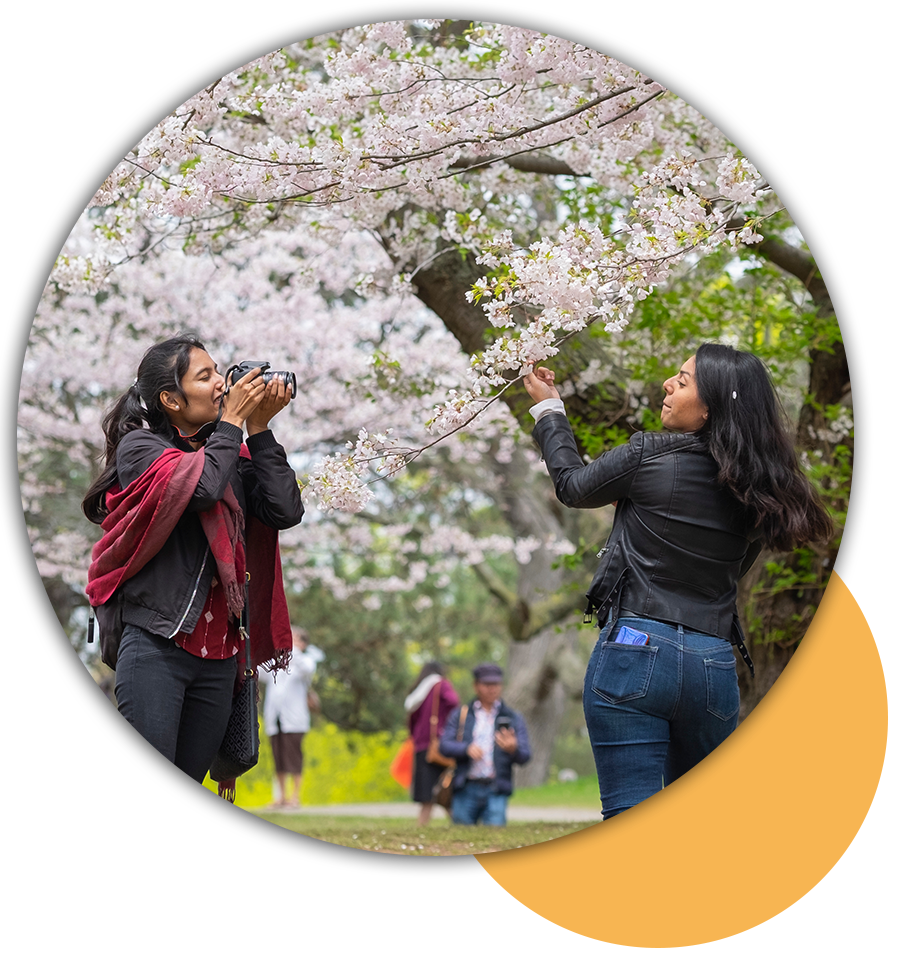Our Commitment to Equity and Anti-Racism
Colonialism, inequality and racism are part of our country’s history and part of the history of conservation. For centuries, colonial policies have devalued Indigenous peoples and their knowledge systems—systems that have safeguarded nature for millennia. And, for centuries, racist policies have violated the rights of Black, Indigenous and other racialized peoples, subjecting them to considerable environmental harm and violence and preventing access to safe, healthy environments.
We need a better future for people and the planet.
Nature Canada is committed to advancing equity and anti-racism as an ethical imperative and as central to efforts to stop species loss, climate change and other environmental harms. We recognize that a commitment to equity and anti-racism isn’t a state to be achieved but a commitment to an ongoing practice that contributes to the progressive realization of equitable outcomes for Black, Indigenous and other racialized peoples and equity-seeking groups.
Holistic Approach
Nature Canada’s goal is to advance equity and anti-racism through our own work and through catalyzing improvement and learning in the environmental sector. We’re working on a whole-of-organization transformation across four areas:
- An intersectional approach, considering how power is exercised in terms of gender, age, class, ability, culture and socialization.
- Amplifying the voices of Black, Indigenous and racialized peoples—and speaking out against racial injustice.
- A continual practice of learning and unlearning, informed by the experiences of racialized and equity-seeking groups.
Governance
Our strategic plan recognizes that pursuing equity and anti-racism is crucial to safeguarding nature, in opening it to all, and to reconciliation with Indigenous peoples. We see our shared reliance on nature as a force for unity in Canada.
In addition, Nature Canada is focused on increasing the representation of Black, Indigenous and racialized communities, as well as gender identities, on our Board. We will be strengthening Board capacity to adopt anti-racist practices and to provide oversight with an anti-racist lens. One goal is to ensure that at least half of Nature Canada’s Board are people who identify as Black, Indigenous or individuals from racialized communities and, overall, that at least half of the Board is women. Our Board has published a statement on Reconciliation Principles for Our Work with Indigenous Peoples, as well as a Statement on Equity and Anti-Racism.

Internal Policies and Staffing
Nature Canada is working to develop Human Resources and administrative policies and strategies that include equity and anti-racism components. These entail implementing existing policies (such as our anti-harassment policy and annual performance reviews that support staff growth), as well as implementing strategies to increase diversity among staff and consultants.
For example, in addition to encouraging applications from equity-seeking groups, job posts use language that reduces barriers and attracts diverse applicants, and job requirements prioritize experience working with Black, Indigenous and racialized communities. As the diversity of our staff team grows, we must also address strategies for staff retention.
Programs and Partnerships
All Nature Canada program areas are asked to consider how to address equity and anti-racism and our commitment to Indigenous rights and reconciliation. This includes policy and advocacy work, development and engagement of more than 250,000 members/supporters in our Nature Nation, and our partnership with our Nature Network of over 900 nature organizations across the country.

i.Expanding NatureHood
This program, financed by Environment and Climate Change Canada, connects urban residents, particularly young people and their families, to nearby nature (everything from the park at the end of a street to national wildlife areas). Last year, we engaged 16,000 individuals through NatureHood. The program acknowledges that racialized communities experience barriers to accessing and enjoying nature, and Nature Canada is developing new partnerships with organizations deeply rooted in these communities. Nature Canada’s new Race and Nature in the City report provides a community-informed needs assessment and makes recommendations for meaningfully engaging racialized youth in nature-based programming and in addressing better representation of racialized communities in our sector. We’re enthusiastic about addressing these recommendations in our own work and will be engaging our existing partners and the nature community more broadly through workshops and webinars featuring the report’s authors.
ii.Work to Grow
Funded by Parks Canada, this program helps to create 275 job opportunities for Black, Indigenous and racialized youth in the conservation and naturalist sector (matching half of their wages for eight to sixteen weeks). Community, equity, support and mentorship are central to the delivery of the program. Nature Canada will leverage its partnerships in the Nature Network and beyond to build capacity and resources and to provide training in the sector to attract and retain Black, Indigenous and other staff from racialized communities.
iii.Indigenous-Led Conservation
The call for Indigenous-led conservation is central to Nature Canada’s campaigns for protected areas, nature-based climate change and forest restoration. More than 600 species are at risk in Canada, and we’re dedicated to working with our supporters, partners and Indigenous peoples to defend nature and hold government and industry to account. Crucial to this is strengthening our relationships with Indigenous organizations, including the Assembly of First Nations, and partnering with First Nations, such as the Cree Nation Government, to support efforts to document biodiversity in their territory and to seek to protect it.
With support from the firm Watershed Partners, Nature Canada recently completed a strategic assessment of our commitment to Indigenous engagement and inclusion across our programs. We intend to share the report’s recommendations and our efforts to improve, while looking to see if our journey is a means to engage other nature groups across the country on these issues.
iv.Promoting Environmental Justice
Nature Canada works with allies to pursue policy and legal reforms to advance racial and environmental justice. We’re active in calling for precedent-setting legislation to launch a national strategy to redress environmental racism and establish a high-level office of environmental justice and equity to address the disproportionate impacts of pollution and environmental degradation in racialized and marginalized communities.
v.Women for Nature
Nature Canada is developing new directions for our flagship Women for Nature program, while we continue to engage the next generation. We recently launched Round 3 of the Women for Nature Mentorships, with mentors supporting 21 young women for six months. We also mobilized over 50 women leaders from diverse regions and sectors, and across Indigenous, Black, racialized and LGBTQ2IS+ communities in an open letter to Canada’s Deputy Prime Minister that urged investments in Nature in the federal budget.
vi.Communications
Nature Canada is reaching out across digital platforms to engage racialized Canadians in our work. We’re amplifying the voices and priorities of Indigenous and racialized leaders involved in conservation, and we’re breaking down barriers to our sector by increasing representation of these leaders in our communications. In this way, we aim to expand engagement of racialized Canadians in our campaigns, learn from their perspectives, and expand the power and scale of the nature movement.
Through Work to Grow, we’ll also begin an initiative with two cohorts of young journalists, one group focused on stories related to the leadership of Black, Indigenous and racialized peoples in nature, and a second focused on stories of Indigenous-led conservation across the country. The program will amplify the voices of these youth as they work with mentors to create and publish stories.
Organizational Culture
Nature Canada is focused on creating an anti-racist, inclusive and welcoming workplace. This includes conducting anti-racism training for staff, learning about diverse perspectives and knowledge, and increasing our capacity to recognize and address unconscious bias. We’re building a work culture that strives for respect, support, appreciation, open communication, and fair and transparent decision-making that uses an intersectional lens.
A cross-team Equity and Anti-Racism Committee animates initiatives related to all this. The Committee offers strategic support to teams integrating the commitment to equity and anti-racism into all program areas – and makes suggestions for staff training and learning from our work. An upcoming priority is training about Indigenous rights and ways of knowing.
There is much work ahead; we look forward to improving our practice and sharing our learnings along the journey.

